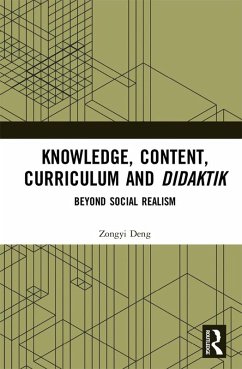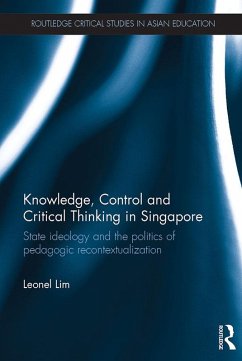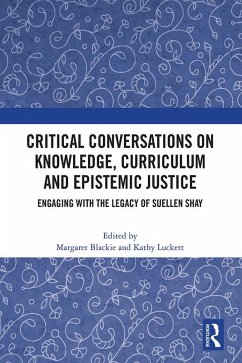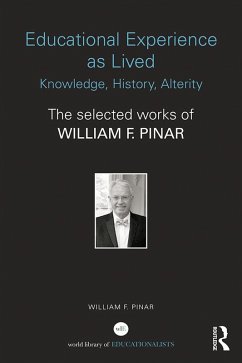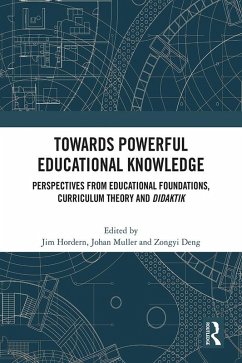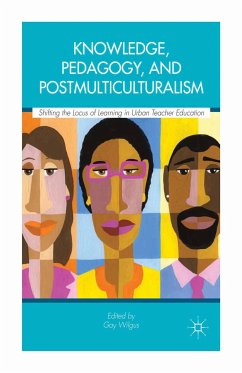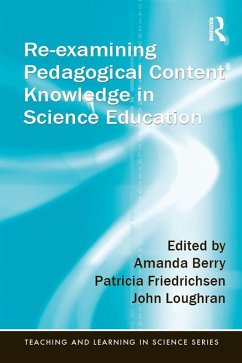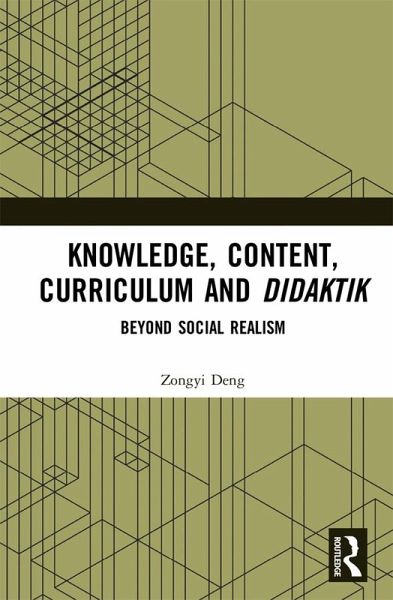
Knowledge, Content, Curriculum and Didaktik (eBook, PDF)
Beyond Social Realism
Versandkostenfrei!
Sofort per Download lieferbar
39,95 €
inkl. MwSt.
Weitere Ausgaben:

PAYBACK Punkte
20 °P sammeln!
Bringing to bear a wealth of literature from curriculum theory, Didaktik, philosophy of education and teacher education, this book broadens and enriches the conversation initiated by Michael Young and his colleagues on 'bringing knowledge back in' (Young, 2007). Knowledge, Content, Curriculum and Didaktik is distinctive in providing a comprehensive and multifaceted analysis of the role of knowledge, and in particular curriculum content, in relation to curriculum policy, curriculum planning and classroom teaching. It makes a case for linking knowledge and content to the development of human pow...
Bringing to bear a wealth of literature from curriculum theory, Didaktik, philosophy of education and teacher education, this book broadens and enriches the conversation initiated by Michael Young and his colleagues on 'bringing knowledge back in' (Young, 2007). Knowledge, Content, Curriculum and Didaktik is distinctive in providing a comprehensive and multifaceted analysis of the role of knowledge, and in particular curriculum content, in relation to curriculum policy, curriculum planning and classroom teaching. It makes a case for linking knowledge and content to the development of human powers or capabilities needed for the 21st century and unpacks the challenges for curriculum policy, curriculum planning and classroom teaching. The book discusses, among other issues:
The book will be relevant for scholars, researchers, policy makers and curriculum developers who seek a more sophisticated, more balanced and philosophically better grounded understanding of the role of knowledge and content in education and curriculum.
- Educational aims and theories of knowledge
- School subjects and academic disciplines: differences and relationships
- School subjects and theories of content
- Understanding the content for teaching
The book will be relevant for scholars, researchers, policy makers and curriculum developers who seek a more sophisticated, more balanced and philosophically better grounded understanding of the role of knowledge and content in education and curriculum.
Dieser Download kann aus rechtlichen Gründen nur mit Rechnungsadresse in A, B, BG, CY, CZ, D, DK, EW, E, FIN, F, GR, HR, H, IRL, I, LT, L, LR, M, NL, PL, P, R, S, SLO, SK ausgeliefert werden.




